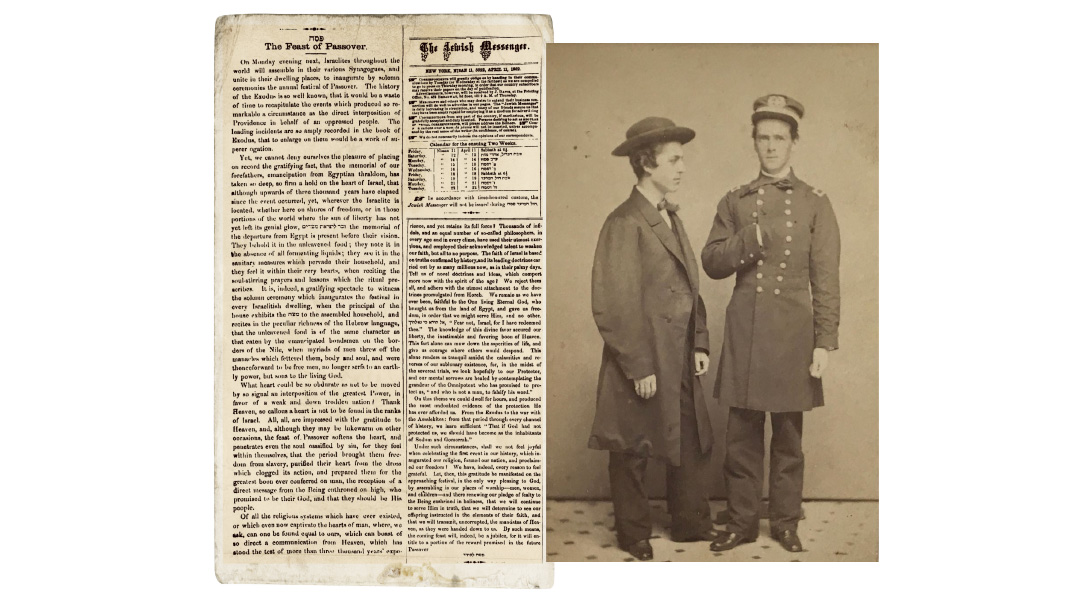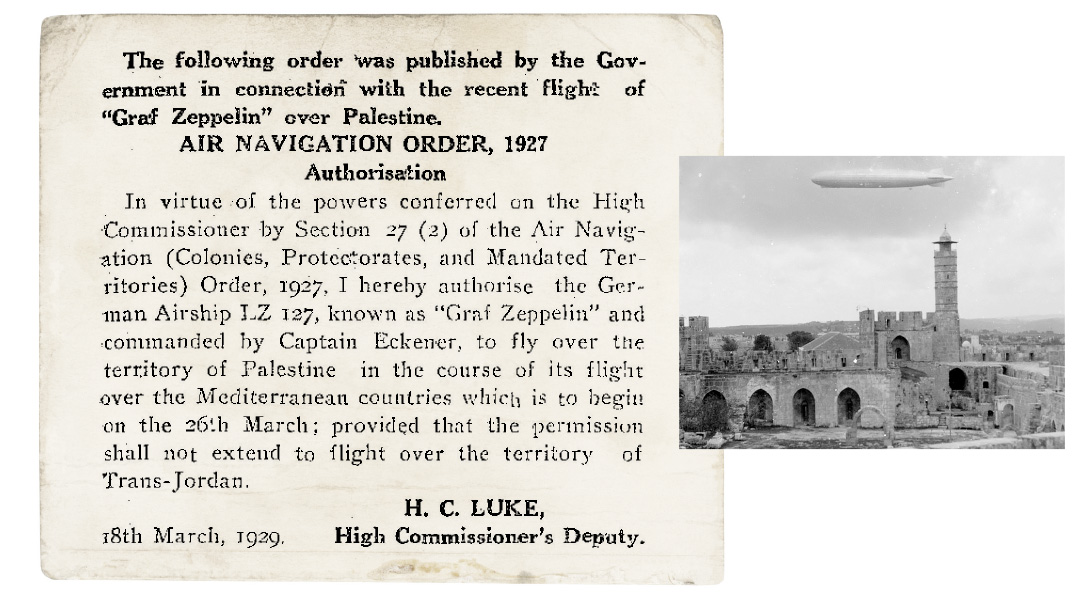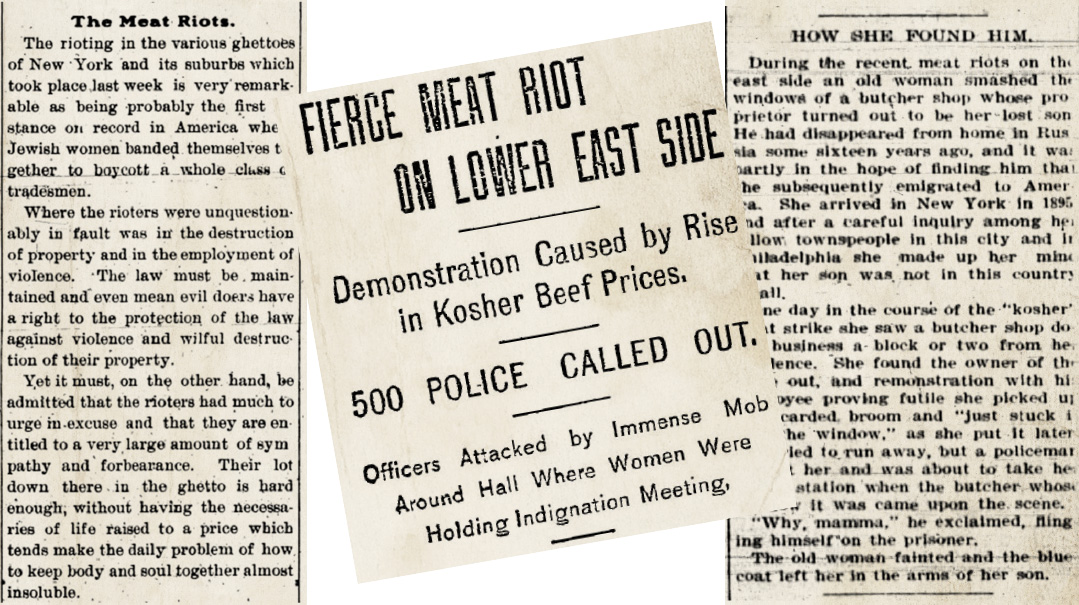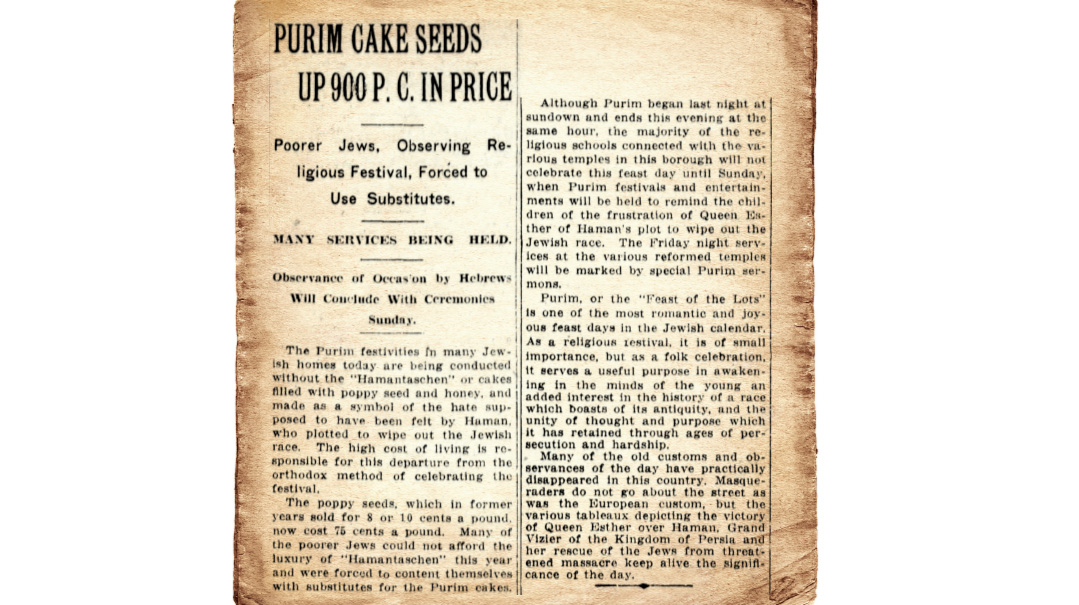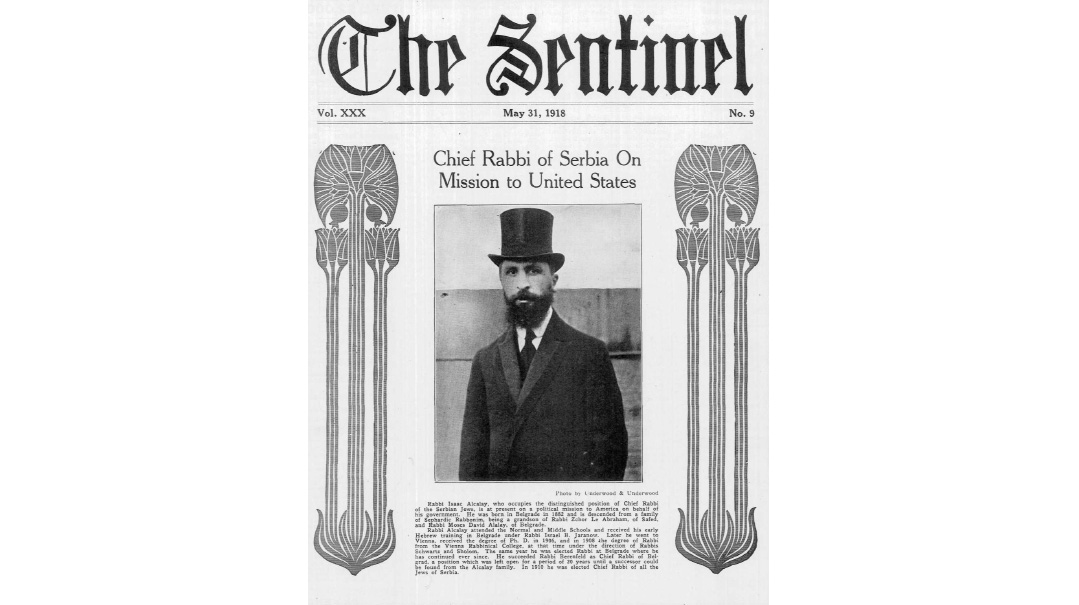The Last Wanderings of the Netziv
| August 23, 2022Rav Naftali Tzvi Yehuda Berlin (1816–1893) would forever be remembered to posterity as the Netziv of Volozhin
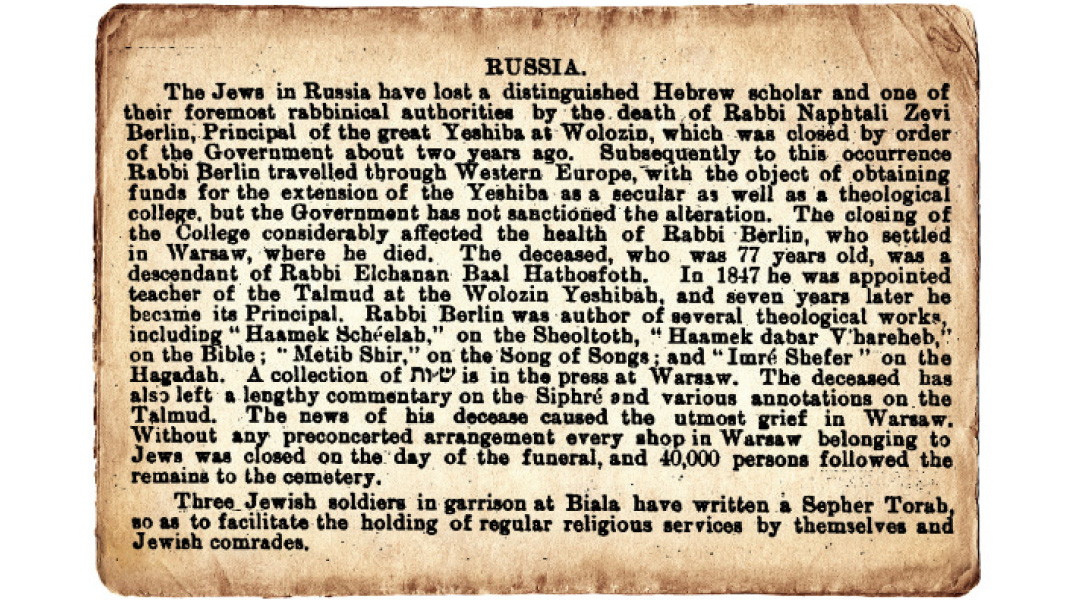
Title: The Last Wanderings of the Netziv
Location: Warsaw, Poland
Document: Jewish Chronicle
Time: September 1, 1893
“On the morning of January 22, government officials, police officers, and local peasants (who had been hired for this purpose) arrived at the Volozhin Yeshivah.… After verifying that all were present, the provincial governor read the governmental edict. ‘As of today the law maintains that this yeshivah is to cease all operations and be shut down.… All students are to exit the town for three days.’ … When the talmidim exited the yeshivah building, the police placed a seal on the building door.… [Reported by] former talmid of the yeshivah Moshe Chaim Grayver.”
—Hameilitz, 17 Shevat 1892
The czarist government’s decree closing the doors of the Volozhin Yeshivah included another clause as well. The Netziv (the rosh yeshivah), his son Rav Chaim Berlin, and the assistant rosh yeshivah Rav Chaim Brisker were banished from the entire Vilna district (where Volozhin was located) for a period of three years. The elderly and ill Netziv now found himself without his beloved yeshivah and without a home as well. To compound an already aggravating situation, the yeshivah at the time of its closing was in a budgetary deficit of nearly 10,000 rubles, and the Netziv felt compelled to fundraise for his no longer existent yeshivah to cover the debt.
Rav Naftali Tzvi Yehuda Berlin (1816–1893) would forever be remembered to posterity as the Netziv of Volozhin. He served in this citadel of Torah for nearly half of the yeshivah’s existence, and its closing had an adverse effect on his already weakened state. Now lacking a home, the Netziv resolved to live out his final years in the Land of Israel. Prior to embarking on this journey, he traveled to the large cities across the Pale of Settlement raising the funds to cover the yeshivah’s debts. His son Rav Chaim Berlin traversed the continent for the same purpose among the Jewish communities in Western Europe, including stops in Paris and Amsterdam.
The Netziv’s sojourn commenced with Vilna and Minsk, where the yeshivah’s dedicated laymen and gabbaim in charge of financial operations were located. While fundraising in Pinsk, the Netziv was a guest at the home of his brother-in-law Rav Baruch Epstein, author of Torah Temimah. Passing through many of the Jewish communities of Eastern Europe, the Netziv soon arrived in Warsaw. The bustling metropolis with its large Jewish population offered another fundraising opportunity, as well as the chance to consult with local physicians regarding his failing health.
The Netziv soon realized that he’d never make it to Eretz Yisrael in his compromised state, and he settled in Warsaw. It was there, on 28 Av 1893, that the Jewish People lost one of its greatest leaders and Torah scholars of the 19th century. Tens of thousands gathered to pay their last respects at his levayah, and he was buried in the Okopowa Jewish Cemetery in Warsaw.
Volozhin in Brisk
Upon his banishment from the Volozhin area, Rav Chaim Soloveitchik settled in Brisk, where his father, the Beis HaLevi, was rav. Following his passing a few months later, Rav Chaim was appointed to succeed him in the Brisk rabbinate. Though he’d serve in the capacity of a communal rabbi for the balance of his life, young Talmudic students flocked to study under his tutelage. Among this elite group were Rav Shlomo Polachek (the Meitscheter Illui), Rav Yechezkel Abramsky, Rav Yehuda Leib Forer, and others.
The Long Road to Yerushalayim
Following his father’s passing and his prodigious fundraising efforts on behalf of the now-defunct yeshivah, Rav Chaim Berlin accepted the rabbinate in Kobrin and later Kropyvnytskyi (then Elisavetgrad) in Ukraine. In 1905 he immigrated to Eretz Yisrael, and upon the passing of Rav Shmuel Salant in 1909, he served in an unofficial capacity as rabbi of the Ashkenazi community of the Old Yishuv. He passed away in 1912 and is buried on Har Hazeisim, in close proximity to his grandfather Rav Yaakov Berlin, who had moved to Yerushalayim in 1853.
Thank you to Professor Shaul Stampfer, whose excellent book Lithuanian Yeshivas of the Nineteenth Century was utilized in the preparation of this column.
(Originally featured in Mishpacha, Issue 925)
Oops! We could not locate your form.

